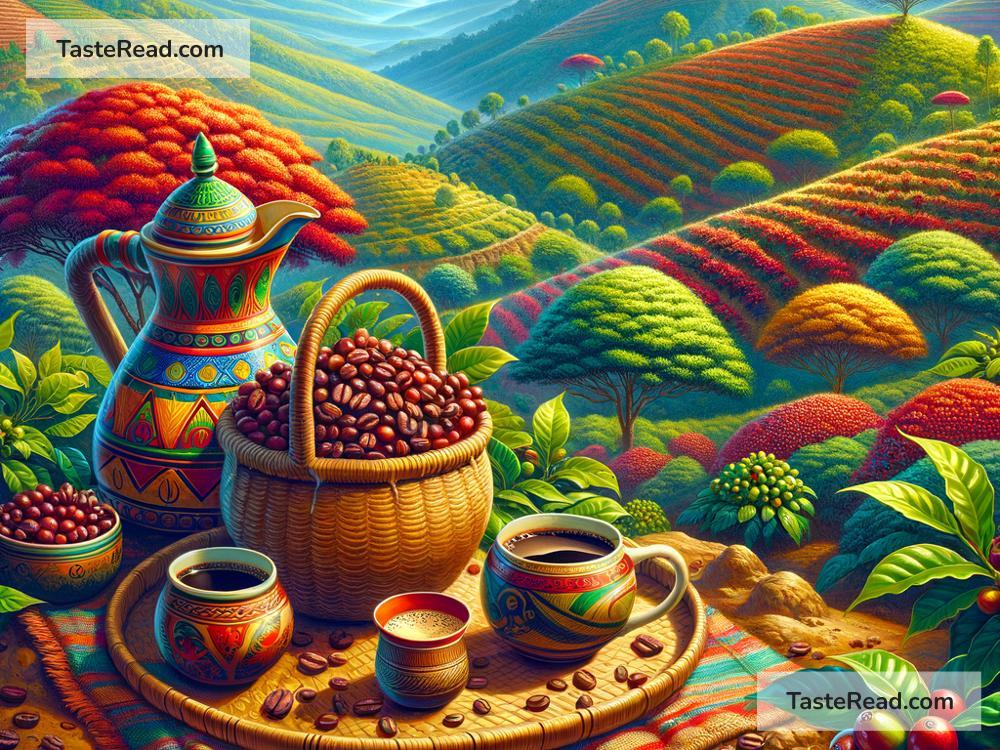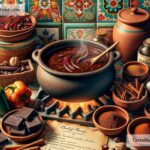The Origins of Ethiopian Coffee: A Story of Flavor, Culture, and Tradition
Coffee is one of the most popular beverages in the world. Every morning, millions of people brew a cup of coffee to help them start the day. But have you ever wondered where coffee originally came from? The birthplace of coffee is Ethiopia, a country in East Africa. Ethiopia’s coffee history is rich, fascinating, and deeply tied to its culture and traditions.
The Legend of Kaldi and the Dancing Goats
The story of Ethiopian coffee begins with a legendary tale about a goat herder named Kaldi. According to the legend, Kaldi noticed that his goats behaved strangely after eating bright red berries from a certain bush. The goats suddenly became very energetic, jumping and dancing around. Curious, Kaldi tried the berries himself and felt a burst of energy.
Kaldi shared this discovery with a local monk, who believed the berries could help him stay awake during long prayers. The monk boiled the berries to create the first cup of coffee. Soon, word of the energizing drink spread to other monks and people in the area. Coffee quickly became part of Ethiopian life, and its popularity began growing beyond the region.
While this tale may not be based on hard evidence, it’s a charming story that shows how Ethiopian coffee might have been discovered. More importantly, it highlights the central role of coffee in Ethiopian culture and history.
Wild Coffee Forests of Ethiopia
Ethiopia is unique because it’s home to coffee plants that grow naturally in the wild. Many experts believe Ethiopia is the only place in the world where coffee originated. Coffee plants thrive in Ethiopia’s highlands and forests, especially in the regions of Kaffa, Sidamo, and Harar. Kaffa is particularly important because some historians think the word “coffee” comes from “Kaffa.”
Ethiopia’s wild coffee forests are unlike any other in the world. These forests are full of biodiversity, with hundreds of different coffee species. Farmers in Ethiopia use traditional methods to grow coffee, often under the shade of larger trees. This approach protects the environment and helps preserve the unique, natural flavors of Ethiopian coffee.
Ethiopia’s Coffee Ceremony
Coffee is more than just a drink in Ethiopia—it is a deeply cultural experience. One of the most important traditions in Ethiopia is the coffee ceremony. The ceremony is a symbol of friendship, hospitality, and community.
During the ceremony, coffee beans are roasted over an open flame. The smell of freshly roasted coffee fills the air, creating a warm and welcoming atmosphere. The beans are then ground and brewed in a clay pot called a “jebena.” The brewing process is slow and done with care, as the host prepares the coffee for their guests.
The coffee is served in small cups, and it is common to drink three rounds of coffee during the ceremony. Each round has a special name: “abol” (the first cup), “tona” (the second), and “bereka” (the third). The third round is considered a blessing and symbolizes the completion of the ceremony.
For Ethiopians, coffee is more than just a beverage—it’s a way to connect with others. Families and friends gather for coffee ceremonies to share stories, celebrate special occasions, or resolve conflicts. The ceremony embodies Ethiopia’s deep love for coffee and its role in bringing people together.
Ethiopian Coffee Around the World
It took time for Ethiopian coffee to reach other parts of the world. The Arabian Peninsula was one of the first regions outside of Africa to embrace coffee. By the 15th century, coffee spread to places like Yemen, where it was cultivated and enjoyed. From there, coffee made its way to Europe, Asia, and the Americas, becoming the global phenomenon we know today.
Even though coffee is now grown in many countries, Ethiopian coffee remains unique. Ethiopian coffee is famous for its rich, fruity flavors and variety. Coffee lovers around the world appreciate the distinct taste of Ethiopian coffee, which can range from bright citrus notes to deeper chocolate tones.
Preserving Ethiopia’s Coffee Heritage
Today, coffee remains an essential part of Ethiopia’s economy and culture. Ethiopia is one of the largest coffee producers in the world, and millions of farmers rely on coffee as their main source of income. However, coffee farming faces challenges, including climate change and deforestation.
To protect Ethiopia’s coffee heritage, farmers and organizations are working together to preserve wild coffee forests, improve sustainable farming methods, and promote fair trade practices. These efforts ensure that Ethiopian coffee will remain a global treasure for years to come.
Conclusion
The story of Ethiopian coffee is a tale of discovery, tradition, and connection. It began with the legend of Kaldi and his dancing goats and grew into a worldwide phenomenon. Ethiopia’s coffee is deeply tied to its people, their land, and their culture.
Next time you enjoy a cup of coffee, think about its origins in Ethiopia. Whether it’s through the warm gatherings of the coffee ceremony or the rich, complex flavors of its beans, Ethiopian coffee reminds us of the power of simple things that bring people together.


